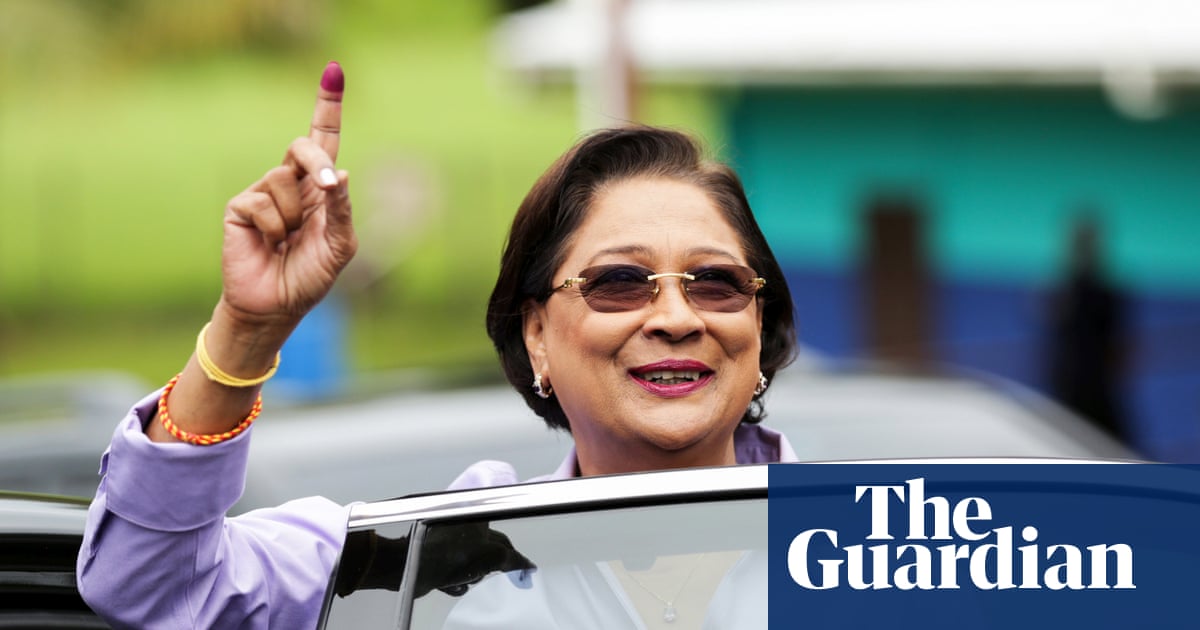Voters inTrinidad and Tobago(T&T) have ousted the ruling People’s National Movement (PNM) party, electing the United National Congress’ (UNC) Kamla Persad-Bissessar as prime minister of the twin-island Caribbean nation.
The victory marks a remarkable comeback for Persad-Bissesar, 73, who previously served as prime minister from 2010-2015, and remains the only woman ever to have led the country.
In her victory speech to crowds of cheering supporters late on Monday, Persad-Bissesar pledged to deliver on election promises.
She said: “This victory is for the senior citizens to keep their pensions. This victory is for public servants to get their rightful salary increases. This victory is to reopen the children’s hospital ...This victory is to once again give laptops to our children. This victory is to create over 50,000 jobs. And so, the victory is yours.”
Persad-Bissessar, a distinguished attorney, became the first woman to lead the UNC in 2010 . The UNC faced internal upheaval, high-profile resignations and a series of electoral defeats but Persad-Bissessar’s leadership has helped the party re-establish itself as a credible force, particularly among voters seeking change.
Her speech came minutes after the PNM conceded defeat. Former prime minister and PNM party leader Keith Rowley said: “Tonight is not a good night for the PNM, but it might be a good night for Trinidad … Things have gone very well with the processes. The results are coming in now. And from what we have coming in … it is clear at this time that we have lost the election.”
Outgoing prime minister Stuart Young added: “The electorate has spoken tonight, and we look forward to tomorrow morning, tomorrow morning you will see a strong PNM back on the road, back servicing the population ofTrinidad and Tobago.”
The election also saw unprecedented success for the Tobago People’s party (TPP), which ousted two PNM incumbents in Tobago. For the first time since Jack Warner’s Independent Liberal party (ILP) won Chaguanas West in 2013, the country will now have three political parties represented in the House of Representatives.
The snap election, triggered after Rowley’s unprecedented resignation and the appointment of Young as prime minister, came amid a surge in the cost of living, Trump’s trade wars and soaring crime rates.
It followed a three-month state of emergency, declared on 30 December aftera wave of bloody gang warfare. Last year, T&T, which has a population ofabout 1.5 million, recorded 624 homicides, making it one of themost violent countriesin Latin America and the Caribbean.
During their campaign, the UNC promised a range of initiatives to tackle crime, including the creation of new ministries of defence and justice.
Before the vote, Hamid Ghany, a political analyst at the University of the West Indies said that Trump’s relations with T&T may change with Persad-Bissessar as prime minister.
Earlier this month, the US revoked two licenses it had granted in recent years for the development of offshore natural gas projects between Trinidad and Tobago and Venezuela, dealing a blow to the country’s economic growth projections.
“The closeness between PM Young and [Venezuela’s] Maduro’s regime will be on the Trump administration’s radar should the PNM win the election,” Ghany said. “It is quite possible that there may be a different response from the Trump administration should the UNC win the election, given the favourable disposition of Kamla Persad-Bissessar towards Trump,” he added.
